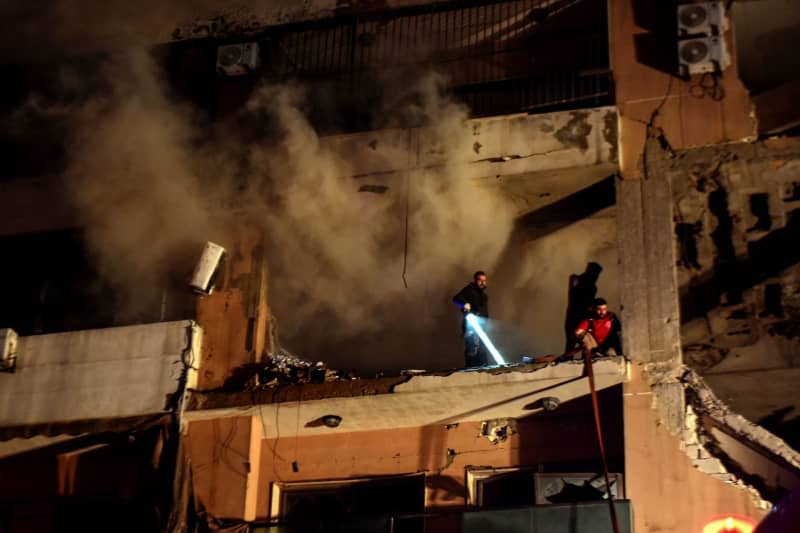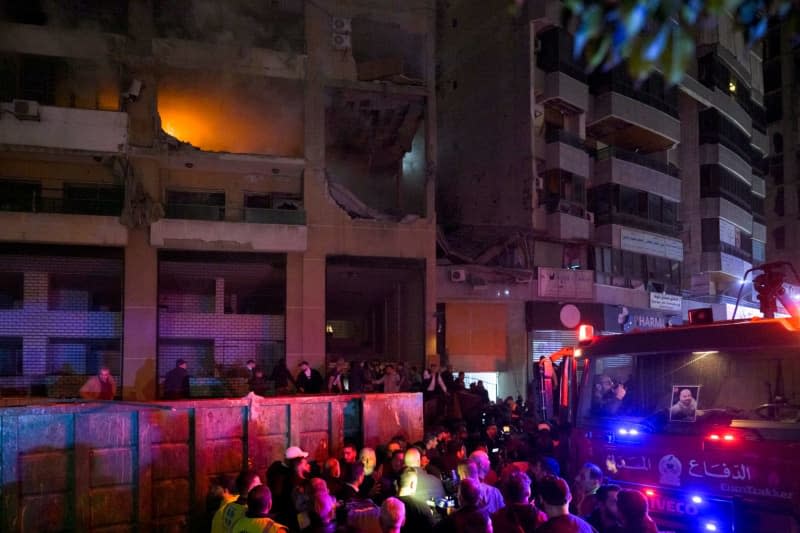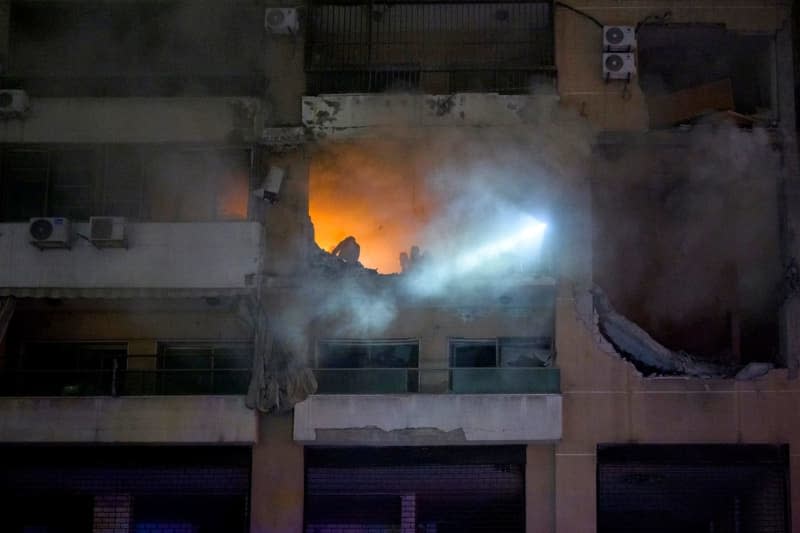Hamas deputy leader al-Arouri killed in Beirut explosion

Hamas deputy leader Saleh al-Arouri was among six people killed in a blast in Beirut on Tuesday evening, in a clear sign that the conflict between Israel and Lebanese militia Hezbollah could escalate even further.
Hamas and Hezbollah confirmed that Al-Arouri, said to have been involved in negotiations on the possible release of hostages in Gaza, had died in the blast.
According to police sources, the explosion occurred in a southern Beirut suburb considered an Hezbollah stronghold in front of an office of Palestinian extremist organization Hamas, which is engaged in a devastating war with Israel in the Gaza Strip.
State news agency NNA said at least six people were killed in the blast. The cause was initially unclear but reports quickly began to circulate that it could have been a targeted killing on behalf of Israel.
Al-Arouri's death is a setback for efforts to achieve a renewed ceasefire and the release of hostages in Gaza, and Israel's Haaretz newspaper reported, citing Arab diplomats, that the talks had been halted as a result of the "assassination".
Eyewitnesses said a drone attack had hit a building as well as a car from which civil defence workers pulled a charred body after the fire. Parts of a building were completely destroyed after the explosion.
Lebanese media reported that Al-Arouri, who lived in Beirut, was killed in a flat. Hamas sources said that a Palestinian group had been holding a meeting in the area in the evening.
According to Israeli media, the army is prepared for all scenarios following the incident in Beirut, including long-range rocket fire from Lebanon.
Iran-backed Hezbollah, which is considered to be much more powerful than Hamas, on Tuesday evening said it would retaliate, adding that the killing of Al-Arouri would "never pass without response or punishment."
Hezbollah has "its hand on the trigger" and its fighters are "in the highest [state] of readiness," it said.
After "90 days of crime, murder and destruction," Israel was "unable to subjugate Gaza" and therefore resorting to targeted attacks, Hezbollah said.
Lebanese caretaker Prime Minister Najib Mikati condemned Israel for the explosion, saying that Israel was resorting to exporting its failures in Gaza, and that the blast had a clear implication for Lebanon in confounding "efforts to remove the spectre of war from the country."
"The explosion is an Israeli crime that clearly aims to bring Lebanon into a new phase of confrontations after the ongoing daily attacks in the south," Mikati said, referring to escalation of violence at the border with Israel between Hezbollah and Israeli forces.
Iranian Foreign Ministry spokesman Nasser Kanaani said the attack was "the result of desperation and a serious and irreparable defeat against Palestinian resistance groups," calling for a response from the UN Security Council.
Hamas also condemned the killing, with Hamas leader Izzat Al-Rishq saying "the assassinations carried out by the Zionist occupation prove once again the abject failure of this enemy to achieve any of its aggressive goals in the Gaza Strip."
The Lebanese military expert and former general Khalil Hilo described the situation as "very dangerous," saying that Hezbollah would "not tolerate an attack in its stronghold in Beirut." There may be further indications of this on Wednesday in a speech by Hezbollah leader Hassan Nasrallah planned for the evening.
The response from the Israeli side was quieter and the Israeli army declined to comment on the explosion. The Washington Post quoted an anonymous source at the US Department of Defense that the Israeli military was responsible for the attack in Beirut.
However according to Israeli media reports, the Israeli cabinet secretary has prohibited the ministers from commenting on the incident.
Far-right Israeli Finance Minister Bezalel Smotrich wrote on X: "All your enemies will perish, Israel." Danny Danon, a senior member of Israeli premier Benjamin Netanyahu's Likud party congratulated Israel's military, intelligence and security forces on the killing of Al-Arouri in Beirut.
All those involved in the massacre on October 7 should know that Israel will get to them, he wrote on social media platform X.
The blast comes as tensions are already running high on Israel's northern border with Lebanon, where pro-Iranian Hezbollah has ramped up cross-border attacks following the beginning of the Gaza war, triggered by the Hamas attack on southern Israel on October 7.
The explosion occurred on the eve of the third anniversary of the killing of General Qasem Soleimani of Iran's Revolutionary Guard Corps (IRGC), who died in a US drone strike in Iraq in 2020. Iranian senior General Seyed Razi Mousavi was also recently killed in a suspected Israeli airstrike in Syria.
Al-Arouri is considered one of the founders of the al-Qassam Brigades, the armed wing of the Hamas, and has long been considered a possible target of a potential Israeli attack. He was considered to be responsible for al-Qassam's activities in the West Bank.
He was said to be 58 years old and spent a total of 12 years in Israeli prisons before his release in 2010. He was also a close associate of Hezbollah leader Nasrallah, who rarely appears in public. Israel's army had destroyed Al-Arouri's house in the West Bank at the end of October.
The apparent drone attack in Beirut has now raised fears of further escalation between Israel and Hezbollah, which is considered to be militarily far more powerful than Hamas, while there is no end in sight to hostilities in the Gaza Strip.
The latest Gaza war was triggered by the worst massacre in Israel's history, carried out by militants from Hamas and other extremist groups on October 7 in southern Israel. They killed around 1,200 people.
Israel responded with massive airstrikes and a ground offensive, in which more than 22,180 people have been killed so far, according to the Hamas-controlled health authority in Gaza.


